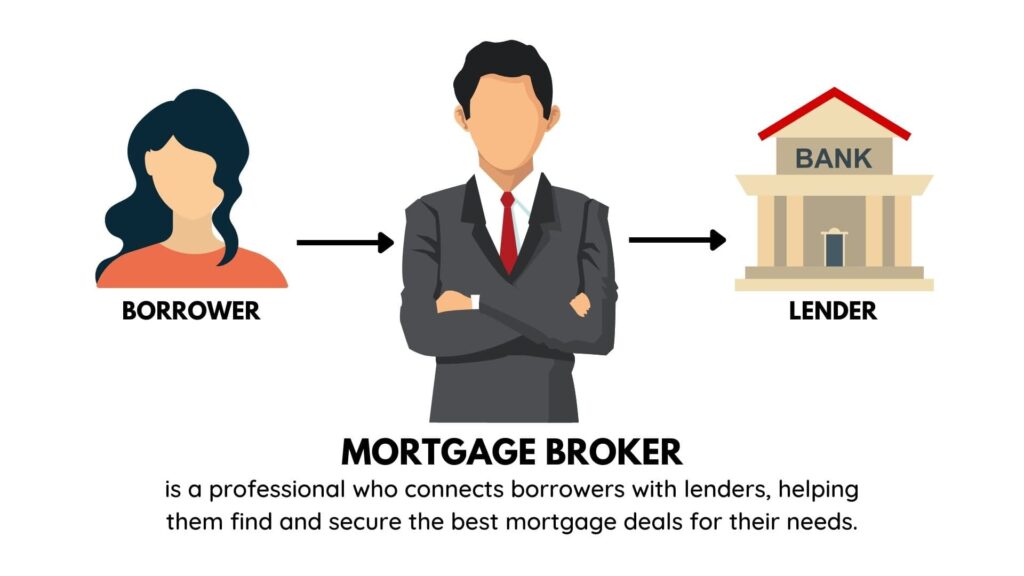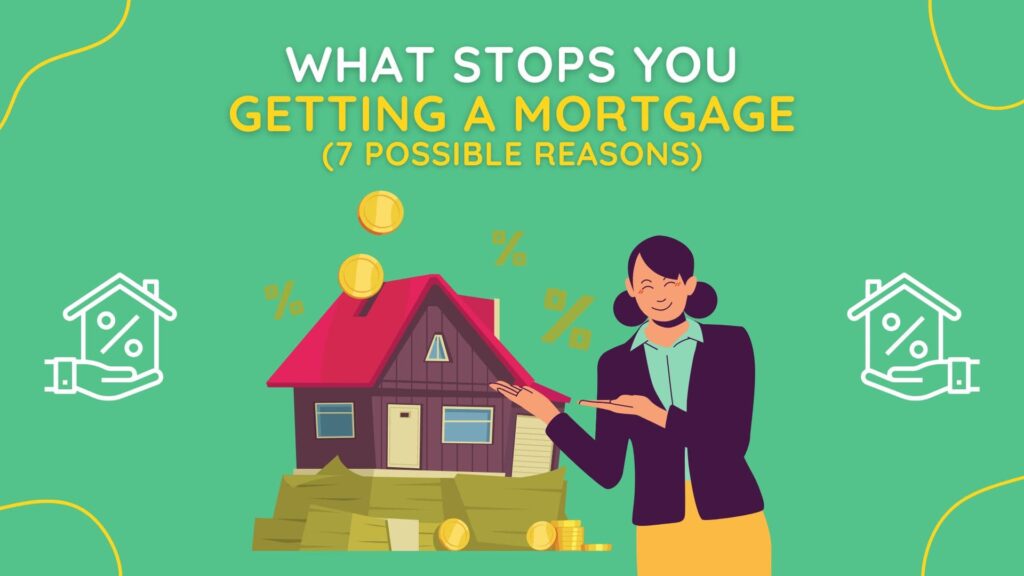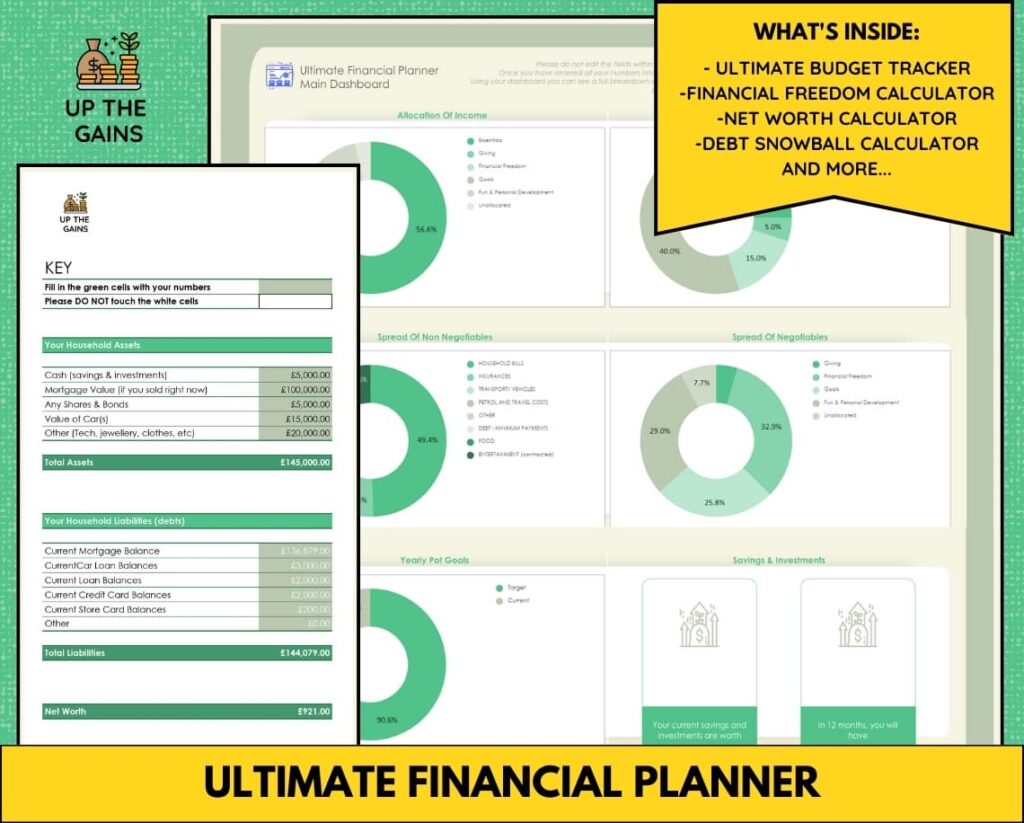
Sammie Ellard-King
I’m Sammie, a money expert and business owner passionate about helping you take control of your wallet. My mission with Up the Gains is to create a safe space to help improve your finances, cut your costs and make you feel good while doing it.

Quickfire Roundup:
When it comes to getting a mortgage, there are certain factors that can play a significant role in the lender’s decision-making process.
I will delve into the common obstacles that applicants face and discuss potential solutions to overcome them.
Whether it’s credit-related issues, income concerns, or other obstacles, understanding these factors will help you navigate the mortgage application process more effectively.
As someone looking to buy a home and secure a mortgage, it’s important to understand the factors that may prevent you from obtaining one.
I’ve had my fair share of mortgage rejections but mainly because I was a business owner looking for a mortgage so it was a bit harder for me.
I didn’t let that get me down and worked hard for a few months to get myself in a position to get the mortgage rate I wanted.
Still, though, many of the same principles applied to me as they will for a regular mortgage application and there are several requirements and considerations that lenders take into account when assessing mortgage applications.
In this article, I will explore the various factors that can stop you from getting a mortgage and offer insights on how to improve your chances of approval.
What stops you getting a mortgage? Well, let’s find out.
Table of Contents
What can stop you getting a mortgage?
The main factors are poor credit scores and not enough income relative to your deposit size or mortgage requirements.
There are however a number of contributing factors to both of these two main problems.
Sometimes for instance it is just out of your hands and there’s issues with the property or the lender has a change of heart.
Let’s get into it in a bit more detail!
Credit History and Credit Score

Understanding the Importance of Credit History
Lenders will always look at your credit history when applying for a mortgage.
This is because it provides insights into your financial responsibility and determines how likely you are to make repayments on time.
A poor credit history, characterised by missed payments, defaults, or bankruptcies, can significantly impact your mortgage application.
What role does a credit score play in the mortgage application process?
Your credit score is a numerical representation of your creditworthiness and is based on various factors such as payment history, credit utilisation, and length of credit history.
Mortgage lenders use this score to assess the risk involved in granting you a loan. A lower credit score can limit your options and make it more difficult to secure a mortgage.
Ways to Improve Creditworthiness
To improve your creditworthiness, start by reviewing your credit report for any errors or discrepancies.
Paying your bills on time, reducing outstanding debt, and keeping credit utilisation low can also positively impact your credit score. It may take time to improve your creditworthiness, but these steps will set you on the right path.
- Sammie’s Hot Tip
Use the free 30-day trial over at Checkmycreditfile.com – They allow you to look at all the big agencies such as Experian, Equifax and Transunion in one report which is downloadable for your mortgage applications.
My tip is important for checking for discrepancies and believe it or not, credit agencies don’t all show the same results and often add or miss things that other agencies don’t.
Income and Affordability
Assessing Income Stability
Lenders want to ensure that you have a stable source of income that allows you to make mortgage repayments.
Typically lenders assess your income by looking at your employment history, salary, and pay stubs. Irregular income or a lack of steady employment can be a barrier to mortgage approval.
Understanding Affordability Checks
Affordability checks are conducted by lenders to determine if you can afford mortgage repayments based on your income and expenditure.
These checks consider factors such as existing debts, monthly expenses, and other financial commitments. Failing an affordability check can prevent you from getting a mortgage.

Increasing Affordability
To increase your affordability, consider reducing your debts, minimising monthly expenses, and increasing your income through additional sources or career advancement.
Consulting with a financial advisor can also provide valuable insights on improving your financial situation and making you more attractive to lenders.
Essentially what they are doing is working out your monthly expenditure. So if you’ve got abnormal levels of debt vs your income this can go against you.
If that sounds like you then I suggest you fix it before even bothering to apply. That being said, I had business loans and a personal loan when I applied but because my monthly payments were affordable the lender was okay with it.
Recent job move or salary change?
If you’ve had a recent move or salary change lenders will typically want you to be in full-time employment for at least 3 months but ideally above 12 months.
For the self-employed mortgages, this differs and you need to show at least 2 years of tax returns but according to my own mortgage advisor, some lenders will consider 1 year.
Now I think it’s important not to panic here. My partner went back into a full-time role for 3 months and because she had passed probation the lender actually took this into consideration.
We provided the email to the lender who said they were happy with that. Some lenders are more reasonable than others, the big banks go off algorithms and often won’t even give you a reason why they denied the application.
If you have this happen to you then your mortgage advisor will look for lenders where they can chat to someone and explain the situation to their underwriting team.
Boon Brokers are one of the UKs leading online mortgage brokers. They have a 5-star excellent Trustpilot rating with over 543 reviews.
- No mortgage fees
- Whole of market access
- Free online consultations
- Directly authorised by the FCA
- No in person meet ups
Application Process and Documentation
Completing the Application Form
The mortgage application form is a crucial step in the approval process. Any inaccuracies or incomplete information can lead to delays or outright rejection.
It is essential to thoroughly review and accurately fill out the application form to avoid unnecessary hurdles.
My opinion is to take your time with this. Sit down and go through it all somewhere quiet plus I also got my neighbour who’s a lawyer to check it over.
Some lenders don’t allow you to reapply albeit a small amount so you don’t want to get into bother because you missed your middle name off!

Necessary Documentation
Lenders require specific documents to support your mortgage application. These typically include proof of identity, address, income, and bank statements.
Failure to provide the necessary documentation can hinder the loan approval process so again get these ready in advance.
Proof of address is a letter from a company in the past 3 months. Income is your most recent 3 payslips. Identity is a passport or driving license and bank statements are your most recent 3 too.
- Sammie’s Hot Tip
DO NOT gamble in the 6 months leading up to an application. Lenders hate this so be sure you’ve got a clear bank statement before applying.
Ensuring a Smooth Application Process
I know we’ve mentioned this already but I’m going to say it again.
To ensure a smooth mortgage application process, gather all the required documentation well in advance.
Organise your financial paperwork, update address details, and address any discrepancies in your records. Being proactive and prepared will help streamline the application process.
Other Factors that Can Stop You Getting a Mortgage
There is an issue with the property
Properties, especially older ones requiring significant renovation or those in high-flood-risk areas, might raise concerns for lenders.
Such properties can be perceived as unmortgageable due to the associated risks. While potential buyers often obtain property valuations, lenders also conduct their own assessments which can be problematic if they deem it unsuitable.
Equally, I’ve also seen it when a lender’s surveyor values the property lower than the applied mortgage amount, then their application could be declined post-valuation.
Addressing property issues early in the process, considering specialist lenders, or adjusting the mortgage amount can help navigate these challenges.
I appreciate it can be difficult when you’ve found somewhere you’ve got your heart set on but sometimes an older property can be more hassle than it’s worth.

Employment Status and Stability
Lenders prefer borrowers with a stable employment history and regular income.
Self-employed individuals, those on temporary contracts, or those who have recently changed jobs may find it more challenging to secure a mortgage.
Demonstrating job stability and a consistent income stream can strengthen your application.
We have a guide all about how to get a mortgage as a business owner and self-employed mortgages for you.
Deposit Size and Property Value
The size of your deposit and the value of the property you wish to purchase can impact your eligibility for a mortgage.
Lenders often require a minimum deposit percentage, and if the property value is lower than expected, it may affect their willingness to lend.
Saving for a larger deposit or exploring more affordable properties can help overcome this obstacle.
Existing Debt and Financial Commitments
Lenders consider your existing debt and financial commitments when assessing your mortgage application.
If your debt-to-income ratio is high or you have significant financial obligations, it may affect your ability to make mortgage repayments and could result in a rejection.
Reducing debt and minimising financial commitments can improve your chances of approval.
Things to Think About When Applying for a Mortgage
LTV (Loan-to-Value) Ratio
The LTV ratio is a crucial measure in the mortgage process. It represents the size of the mortgage you’re seeking in comparison to the property’s value.
Lenders often have caps on LTVs, and if you go beyond these, it might necessitate purchasing private mortgage insurance or even result in a declined application. Ensure your mortgage size aligns well with the value of the property you’re eyeing.
From personal experience, rates drop when you have a higher mortgage which reduces the LTV. We applied with a 5% mortgage and so had to take a slightly higher rate.
The Role of Mortgage Brokers
Navigating the intricate web of mortgages can be daunting. Mortgage brokers play an essential role by guiding potential borrowers through the process.
They have a keen understanding of the lending landscape and can match you with lenders who might be more receptive to your specific situation.
Furthermore, they can sometimes negotiate better terms on your behalf, potentially saving you thousands in the long run.

Joint Applications
This is what I did with my partner and it’s important to know there are both advantages and challenges.
On the upside, combining incomes can enhance your borrowing power and might facilitate approval for a larger loan.
However, remember that both parties’ credit histories will be scrutinised. If one applicant has a spotty credit record, it could jeopardise your application. Always weigh the pros and cons before deciding on a joint application.
Mortgage Types
Not all mortgages are created equal. There’s a range to choose from, each with its own set of benefits and limitations.
Fixed-Rate Mortgage:
- Interest Rate: Fixed for a set period (e.g., 2, 5, or 10 years)
- Pros: Predictable monthly payments
- Cons: Early repayment charges may apply
Variable-Rate Mortgage:
- Interest Rate: Varies according to the lender’s standard variable rate (SVR)
- Pros: Potential for lower rates when interest rates fall
- Cons: Payments can increase if interest rates rise
Tracker Mortgage:
- Interest Rate: Tracks the Bank of England base rate, plus a set percentage
- Pros: Transparency in how rate is determined
- Cons: Payments can fluctuate with changes in base rate
Discounted Rate Mortgage:
- Interest Rate: Discounted from the lender’s SVR for a set period
- Pros: Lower initial payments
- Cons: Payments can increase when discount period ends or if SVR rises
Offset Mortgage:
- Interest Rate: Variable or fixed
- Linked Accounts: Connects savings to reduce mortgage balance for interest calculation
- Pros: Effective use of savings to reduce interest payments
- Cons: Often higher interest rates than other types
Boon Brokers are one of the UKs leading online mortgage brokers. They have a 5-star excellent Trustpilot rating with over 543 reviews.
- No mortgage fees
- Whole of market access
- Free online consultations
- Directly authorised by the FCA
- No in person meet ups
What percentage of mortgage applications are declined?
The number currently stands at 10% of applications get denied.
The criteria for the applications being denied vary per lender but the main issues are creditworthiness and not enough income to cover the mortgage.
That number is low though so people are clearly doing the right thing and checking whether they can apply before doing so!
FAQs
Can I get a mortgage with bad credit?
Yes, it is possible to get a mortgage with bad credit. However, your options may be limited, and you may face higher interest rates or stricter terms.
Working on improving your credit score and demonstrating financial stability can increase your chances of getting approved.
Will multiple mortgage applications affect my credit score?
Multiple mortgage applications within a short period can impact your credit score.
Each application will result in a hard inquiry, which can slightly lower your score. It’s best to be strategic and apply with lenders you have researched and believe are a good fit for your needs.
How long does it take to get a mortgage?
The time to get approved for a mortgage can vary depending on various factors, including the lender’s processes and the complexity of your application.
On average, it can take anywhere from a few weeks to a couple of months from application submission to final approval.
Are there alternatives to traditional mortgages?
Yes, there are alternative mortgage options available, such as guarantor mortgages or government-backed schemes.
These alternatives may have different eligibility criteria and can be worth exploring if you face challenges securing a traditional mortgage.
How soon can you apply for a mortgage after being declined?
Yes, you can reapply for a mortgage after being declined. However, it’s essential to understand the reasons for the previous rejection and address any concerns before reapplying.
This may involve improving your credit score, addressing affordability issues, or seeking guidance from a mortgage advisor.
What stops you getting a mortgage - Conclusion
Securing a mortgage is a significant financial commitment, and several factors can impact your eligibility.
By understanding the common obstacles and taking proactive steps to address them, you can increase your chances of getting approved.
It’s essential to maintain a good credit history, have a stable source of income, and provide accurate documentation throughout the application process.
With persistence and careful planning, you can navigate the mortgage application process successfully and move closer to owning your dream home.
Share on social media
Disclaimer: Content on this page is for informational purposes and does not constitute financial advice. Always do your own research before making a financially related decision.




